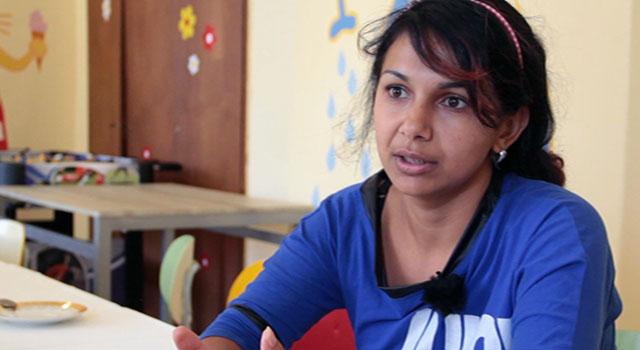Romani women say they do not feel like equal citizens in the Czech Republic and do not feel safe there

More than 60 Romani women from all over the Czech Republic met on Monday at a conference called “Transformation of the position of Romani women during the last half-century”, which was organized by the Romani women’s group “Manushe” of Slovo 21, z.s. Many interesting topics were covered that inspired the women.
Research into the sterilization of Romani women was discussed, as was the Romani women’s movement at the international level. Active Romani women who are forming women’s groups locally and supporting the activization of Romani women presented their work.
Representatives of the educated younger generation also made appearances and discussed what role a career and education plays in their lives and how that fits with traditional Romani values. There was also an historical perspective offered.
Those attending agreed that Romani women, during the past half-century, have made a big step forward. Many of them are emancipated, independent, and proud.
“Despite this progress, I still see many women around me with whom there is a need to work,” Martina Horváthová, coordinator of the Manushe group, told news server Romea.cz. Last year the group launched its “Jileha” (Through the Heart) project.
As part of that project, Romani women’s groups are functioning in Bruntál, Chomtov, Krupka, Mimoň , Náchod, Ostrava, Prague, Rumburk and Turnov that are attempting to change the position and situation of Romani women in their locations. “Moral support and advice from older women to younger ones is very well-received and vice versa. The feeling of solidarity and the feeling that a woman is capable of doing well in more than one area, of setting an example, has sparked changes in some women, both in their relationships with their partners and in their self-awareness about their own options,” explained Emílie Horáčková, who leads the women’s group in Mimoň.
Manushe leads its colleagues toward fuller, happier lives. “We want a world where men and women can live together as equals and where each of us women can find fulfillment,” Horváthová said.
At the end of the conference, all of the Romani women subscribed to a declaration about the current atmosphere in society that affects each of us. News server Romea.cz publishes it here in full translation:
DECLARATION OF ROMANI WOMEN
Conference of the Jileha project, Prague, 28. 11. 2016
Today, 28 November 2016, we have assembled for a conference in Prague on the progress we have made during the last half-century. The current societal atmosphere and recent events force us to express what we are feeling and living through now as Romani women.
We perceive the relationship of society today toward Romani people to be a tense one. We daily encounter displays of xenophobia and of latent and open racism in many aspects of our lives.
We do not feel safe in this country and we do not feel like equal citizens. Our faith in institutions is declining, as we do not see any positive outcomes from all of the costly programs and projects that are frequently implemented about us without us here.
Our wishes for the most important people in our lives, our children, is that they live here safely, have equal access to education, and feel like an equal part of Czech society – that they feel more equal as adults than we do. That is why we are turning to the Government of the Czech Republic and asking that it continue to support inclusion in education and not forget to support safe school environments while doing so.
We want schools to which we do not have to fear sending our children. We want schools that facilitate the full realization of the capabilities of each child in a friendly atmosphere and support each child’s right to choose a life path and to live a full-fledged life.
We, as Roma, are perceived today more like a social category than a nation, which weakens our position as a national minority and prevents the fulfillment of our rights to self- determination. That is why we are turning to our fellow Romani people and asking that they develop the Romani identity of their own children, teach them to be self-confident, and thereby make them capable of dealing with life’s pitfalls.
They should not forget Romani paťiv and our culture, which has enriched the cultural heritage of the world for all time. We are turning to all of the citizens of this country and asking that they not just take advantage of the Romani cultural events that are organized, but that they try to get to know us better, without prejudice.
The role of women in society is just as important as the role of men. That is why we are turning to other Romani women and asking that they not be afraid to advocate for themselves in both the majority and minority societies.
They should not forget about themselves, they should say what they need and want. They should not forget to educate themselves, and they should always return to the wisdom of their mothers.
We are supporting the establishment of both formal and informal women’s groups as a means to strengthen the civic and personal initiatives of their members and to make use of all the capacities of women to enhance societal cohesion. As active citizens, we intend, through this declaration, to lead and support the fulfillment of that capacity with all our strength.
If more Romani women join us, together we can create a truly strong movement and aid in the creation of a better future for all.
